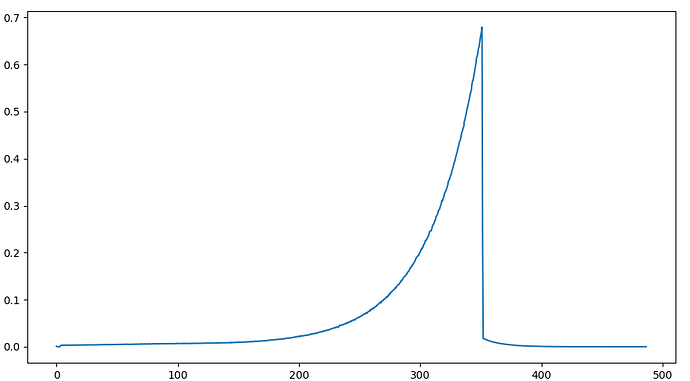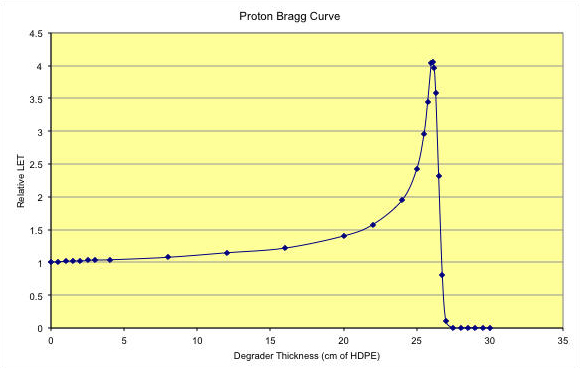Hello! I have a question about how to detail the energy loss of low-energy protons. Namely, for protons below 500 keV. The problem is that the spatial magnitude of the step turns out to be very large. For example, protons with an energy of 30 keV fly through several hundred nanometers in my sample, releasing most of the energy by the time the second step begins. Then they fly a little more, releasing the remaining energy. Thus, the energy loss over the first few hundred nanometers during the first step is not detailed. However, in the case of protons with an energy of over 500 kev, it turns out to collect statistics so that the energy loss is detailed even to 1 nm. I’ve used “G4EmStandardPhysics” and tried to change the minimum energy like this: G4EmParameters::Instance()->SetMinEnergy(2.0 *keV)
As a result, for protons with an energy of 30 kev, I get a peak energy loss at the end of the track. While protons with energy less than 100 kev are most strongly inhibited in matter and should lose a lot of energy from the very beginning of movement through matter, as far as I understand.
Below is a graph of energy loss for protons with an energy of 30 kev:
_Geant4 Version: 11.2.2
_Operating System: Linux Mint 21.3
_Compiler/Version: gcc 11.4.0
_CMake Version: 3.22.1

